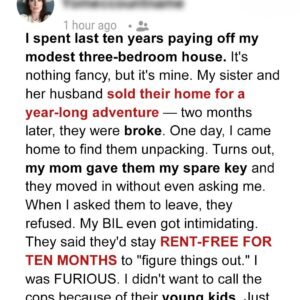Waking up with a sharp pain in your calf is more common than many people realize. These sudden, involuntary muscle contractions—usually in the calves or feet—are known as nighttime leg cramps. While they’re often harmless and linked to dehydration, overuse, or awkward sleeping positions, they can sometimes indicate a more serious underlying condition. When Are Cramps a Concern?. Most leg cramps are mild and go away with simple stretching. However, if they occur more than three times per week, last unusually long, or cause severe pain, it’s time to speak with a healthcare provider.
Cramps that disturb your sleep, leave muscles sore for hours, or are paired with symptoms like leg swelling, weakness, or numbness may be signs of circulatory or nerve problems. Conditions like peripheral artery disease, kidney issues, or diabetes-related neuropathy could be involved. Also, certain medications—such as diuretics, statins, and beta-blockers—can trigger cramping. Common Causes of Nighttime Leg Cramps.
Frequent causes include dehydration, electrolyte imbalances (low magnesium, potassium, or calcium), poor blood circulation, nerve compression, or prolonged inactivity. Older adults and people with chronic conditions like diabetes or thyroid disorders are more likely to experience them.
How to Prevent Leg Cramps at Night
You can reduce cramp frequency through simple lifestyle changes. Stretch your calves and feet before bed to relax the muscles. Stay well-hydrated throughout the day, and eat foods rich in magnesium, potassium, and calcium—like leafy greens, bananas, or dairy products. If you sit or stand for long periods, take breaks to move around. Low-impact exercises such as walking or swimming also improve circulation. Wearing supportive shoes and maintaining a neutral foot position while sleeping may help too.
Other Helpful Habits
A warm bath, gentle massage, or heating pad before bed can relax tight muscles. Reduce alcohol and caffeine intake, especially in the evening, as both can cause dehydration. If you suspect your medication is contributing to cramps, consult your doctor—never adjust prescriptions on your own. In some cases, magnesium supplements may help, but always check with a healthcare professional before starting them.
In Summary
Occasional leg cramps at night are common and usually not dangerous. But if they become frequent, intense, or interfere with sleep, don’t ignore them. With the right daily habits—hydration, stretching, proper footwear, and medical guidance—you can minimize cramps and sleep more comfortably.
Waking up with a sharp pain in your calf is more common than many people realize. These sudden, involuntary muscle contractions—usually in the calves or feet—are known as nighttime leg cramps. While they’re often harmless and linked to dehydration, overuse, or awkward sleeping positions, they can sometimes indicate a more serious underlying condition. When Are Cramps a Concern?. Most leg cramps are mild and go away with simple stretching. However, if they occur more than three times per week, last unusually long, or cause severe pain, it’s time to speak with a healthcare provider.
Cramps that disturb your sleep, leave muscles sore for hours, or are paired with symptoms like leg swelling, weakness, or numbness may be signs of circulatory or nerve problems. Conditions like peripheral artery disease, kidney issues, or diabetes-related neuropathy could be involved. Also, certain medications—such as diuretics, statins, and beta-blockers—can trigger cramping. Common Causes of Nighttime Leg Cramps.
Frequent causes include dehydration, electrolyte imbalances (low magnesium, potassium, or calcium), poor blood circulation, nerve compression, or prolonged inactivity. Older adults and people with chronic conditions like diabetes or thyroid disorders are more likely to experience them.
How to Prevent Leg Cramps at Night
You can reduce cramp frequency through simple lifestyle changes. Stretch your calves and feet before bed to relax the muscles. Stay well-hydrated throughout the day, and eat foods rich in magnesium, potassium, and calcium—like leafy greens, bananas, or dairy products. If you sit or stand for long periods, take breaks to move around. Low-impact exercises such as walking or swimming also improve circulation. Wearing supportive shoes and maintaining a neutral foot position while sleeping may help too.
Other Helpful Habits
A warm bath, gentle massage, or heating pad before bed can relax tight muscles. Reduce alcohol and caffeine intake, especially in the evening, as both can cause dehydration. If you suspect your medication is contributing to cramps, consult your doctor—never adjust prescriptions on your own. In some cases, magnesium supplements may help, but always check with a healthcare professional before starting them.
In Summary
Occasional leg cramps at night are common and usually not dangerous. But if they become frequent, intense, or interfere with sleep, don’t ignore them. With the right daily habits—hydration, stretching, proper footwear, and medical guidance—you can minimize cramps and sleep more comfortably.


